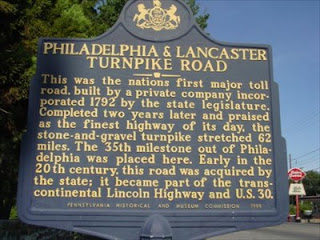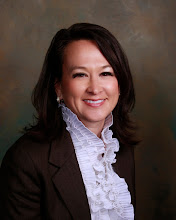William Bingham 1752-1804
Modern America needs to know the story of William Bingham. In today's bitterly divided political environment, it is important to remember that this is not the most divided this country has ever been. Although both sides of the political aisle are thrashing at each other and the politicians are crying "fake news", this is child's play compared to the political divisions of the new Republic.
(1798, House of Representatives, Connecticut Rep. Griswold attacks Vermont Rep. Matthew Lyons on the House Floor)
In the early divisive days of our country's founding, two federal House Representatives (Griswold and Lyons) literally attacked each other on the House floor, one armed with a cane and the other fire tongs from the House of Representatives' fireplace. The Federalists and Republicans were both guilty of printing vicious lies by their yellow muckraker journalists William Cobbett, James Callender, and Benjamin Franklin Bache, to name a few. The Federalists believed that a strong, central government was necessary. The Republicans wanted states' rights, a close union with France, and the dismantling of arms and standing armies. Both sides wanted nothing but the best for our infant country, while their tactics were in fact threatening it. There were repeated threats of secession from both New England and the South. George Washington, always above the fray of partisan politics, was bitterly attacked and not spared. Of course history remembers Alexander Hamilton and Thomas Jefferson being the biggest offenders of their respective parties. While all this was going on and tempers flaring, William Bingham always kept a cool head. A devoted Federalist, he started his work for the country as a young emissary to Martinique whose mission was to supply the revolutionary troops with necessities. Not only did he succeed in this at great cost, he helped bring France into the war on the side of the Americans. While in the West Indies, he learned the art of merchant trading and became a calculated risk taker and businessman throughout the course of his life. So much so, that most of his adult life after the Revolution, he was one of the wealthiest Americans in the country. This was an extraordinary fact as many of his business associates, including Robert Morris, the Philadelphia financier of the American Revolution, ended up in debtors prisons. While his contemporaries got caught up and bankrupted in the fever of wild land speculations, William Bingham kept his head above water despite owning millions of acres of forest land in Maine which did not sell. He and his wife were known for their generous hospitality, inviting friend and political foe alike to their home for constant entertaining. He lived the advice and example of his successful merchant father in law, Thomas Willing who wrote in an autobiographical essay and lived till age 90:
(Thomas Willing, 1731-1821, Father of Anne Bingham, William Bingham's wife, Mayor of Philadelphia in 1763, Delegate to the Continental Congress in 1775, President of the First Bank of the United States)
"My success in life has not been derived from superior abilities, or extensive knowledge, a very small and scanty share of either have fallen to my lot; therefore it can only be ascribed to a steady application to whatever I have undertaken, a civil and respectful deportment to all my fellow citizens, and an honest and upright conduct in every transaction in life." *
(William Bingham in his home where he hosted many parties)
William Bingham was the epitome of class and honorable deportment under political circumstances that tried other men's souls. As a delegation to President John Adams regarding an unpopular mission of sending an emissary to France, he kept his cool in the heated exchange of the delegates questioning the President's powers. Not only did he always act with class, he continued to open his home to his political foes, despite there being no possibility of finding common ground. It was considered an honor in Philadelphia society to be invited to one of the Binghams' lavish fetes. Many of his rivals remarked with deep gratitude that he always treated them with respect. Thomas Jefferson, perhaps ideologically his biggest adversary, remained on friendly terms with both him and his wife, a remarkable achievement considering that Jefferson could not even get along with his cousin, the highly esteemed Supreme Court Chief Justice John Marshall.
With his sincere and smooth manner, he was elected to the Continental Congress and pushed for the adoption of a stronger government ,which led to the Constitutional Convention. He was later elected to the Pennsylvania House of Representatives rising to its Speaker. Subsequently, he was elected to the Pennsylvania Senate becoming President of the Senate. Following these years of coalition building which brought both sides together resulting in numerous good public works for Pennsylvania, he was elected to the United States Senate where he served as one of the cooler heads when tempers flared for war against France. In addition to his public acts, he also advised Alexander Hamilton on what would become the country's first national bank. He wrote its bylaws and served as director. He built one of the most modern roads for the time, the Lancaster Turnpike and the needed Schuylkill bridge.
(Lancaster Turnpike)
His home was always a refuge of hospitality and splendor in the aim of bringing his family and friends together. He opened his home to refugees fleeing the French Terror. He adored his wife and family. His wife Anne, was his reason d'etre. When his wife suddenly passed from a pneumonia type illness resulting from one of her favorite winter sleighing parties, he never quite got over it dying from what is believed to be complications from a stroke at age 52.
(Anne Willing Bingham 1764-1801)
William Bingham was of the old school, you didn't complain. You worked diligently and assiduously taking calculated risks. You sacrificed your time and resources for public office, public works and philanthropy. Among his many other philanthropic ventures, he was one of the founders of Dickinson College. He never lost sight of the true aim of a worthwhile existence and that is to do good for your fellow man and be good while doing it, treating everyone with respect. It is good for us to remember that in this age of political division, this is not the worst it has been nor will it ever be. Leaders, like William Bingham, teach us that we must value each other not for our similarities but for all that brings us together with the goal of doing good for our fellow man.
*The Golden Voyage: The Life and Times of William Bingham: 1752-1804, by Robert C. Alberts, published in 1969, the Epilogue, page. 441






